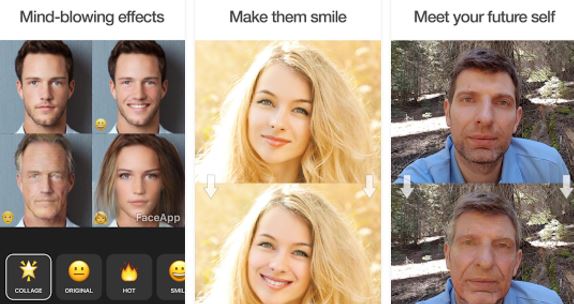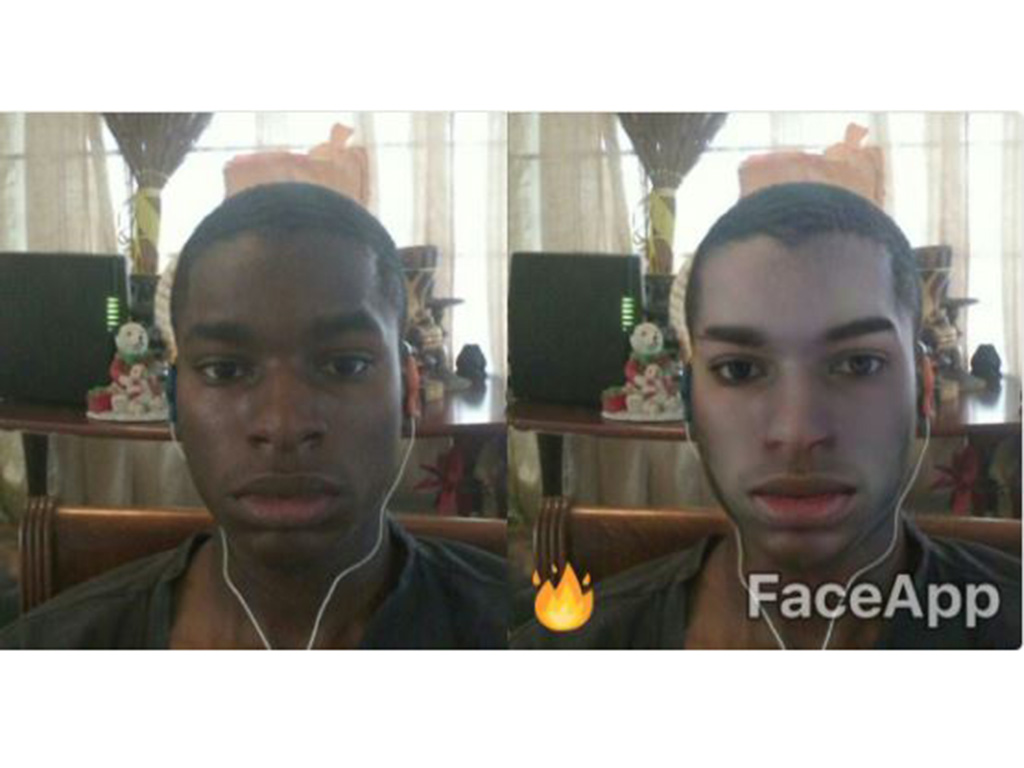A smartphone app that alters users’ selfies is apologizing after receiving backlash for a “racist” filter.

FaceApp uses artificial intelligence to modify selfies in a number of ways to alter the appearance of subjects, like making them look younger or older — or even as though they belong to the opposite sex.
However, the app also featured a “hot” filter that lightened skin to make it appear more white, thus implying that a lighter complexion is equivalent to a more attractive face. The filter has since been removed.
“We are deeply sorry for this unquestionably serious issue,” FaceApp CEO Yaroslav Goncharo said to the Guardian on Tuesday.

“It is an unfortunate side-effect of the underlying neural network caused by the training set bias, not intended behaviour.”
On Tuesday, Goncharo said a “complete fix” would be implemented. (Initially, the app had renamed the filter “spark.”)
READ MORE: New report suggests racism in Canadian newspaper articles about HIV
An apology is “not enough”
Social media users began noticing the skin bleaching feature late last week.
“I downloaded this app and decided to pick the ‘hot’ filter not knowing that it would make me white. It’s 2017, c’mon guys smh #FaceApp,” 21-year-old Shahquelle Lamont of Couva, Trinidad and Tobago wrote on Twitter.
“I was shocked initially when my face turned white and I thought it was a mistake,” he tells Global News.
And while Lamont is happy with apology, he says it’s not enough.
“The main thing that they or any other facial recognition software could do is to make their applications more inclusive and to be aware of the serious social implications that ignorance has.”
Twitter users share their lightened selfies
Some even experimented with black celebrities like Lupita Nyong’o and Morgan Freeman.
The app’s technology
The app, which was developed in Russia, launched earlier this year but only started gaining popularity in the past few weeks. Even celebrities like Mindy Kaling posted their FaceApp collages online.
In February, Goncharo told TechCrunch the app used “neural networks” to modify faces and keep them looking realistic.
READ MORE: Are Donald Trump’s policies fuelling racism in Canada?
“Our main differentiator is photorealism,” he said. “After applying a filter, it is still your photo. Other apps intentionally change a picture in a way that it is entertaining, but not a real photo anymore.”
Some users are defending the app
Some Twitter users have jumped to the app’s defence saying the filter isn’t racist, but merely aims to “erase skin problems.”
“It’s the program, it’s built so the ‘hot’ will erase skin problems, they should put a detection of skin colour. It’s not racism,” user Guy_KL16 wrote.
“It’s not making you white, it’s increasing the contrast of facial features and essentially feminizing your face,” user Zergfriend wrote.
However, users like Lamont, who tooled around with the app, is not convinced.
“That’s the thing I tried it with images of other people and the result is the same, lighter complexion and slimmer features,” he wrote on Twitter.
Other brands in hot water
In August 2016, a Snapchat face filter was called out for altering users’ faces and eyes to appear more East Asian, the BCC reports. Several people called it “yellowface.”
READ MORE: Serena Williams calls out Ilie Nastase for ‘racist’ comments about her unborn child
The app was also in hot water for their “Bob Marley” filter that appeared to morph non-blacks into the iconic musician with a darkened skin tone and dreadlocks.






Comments